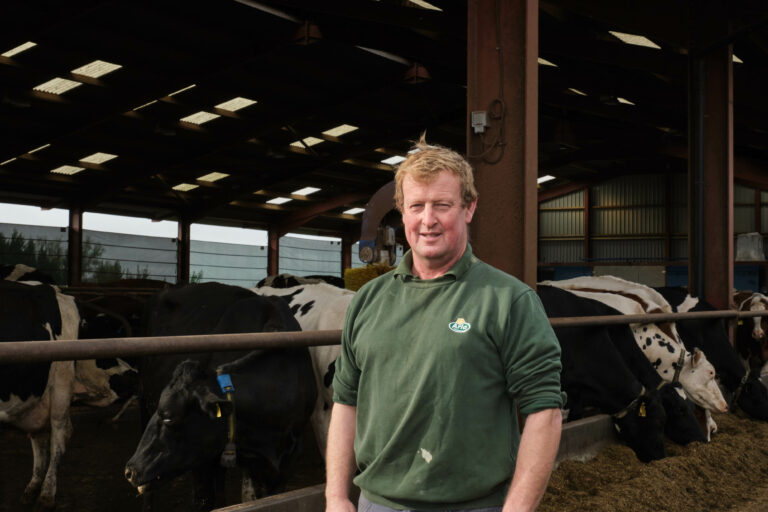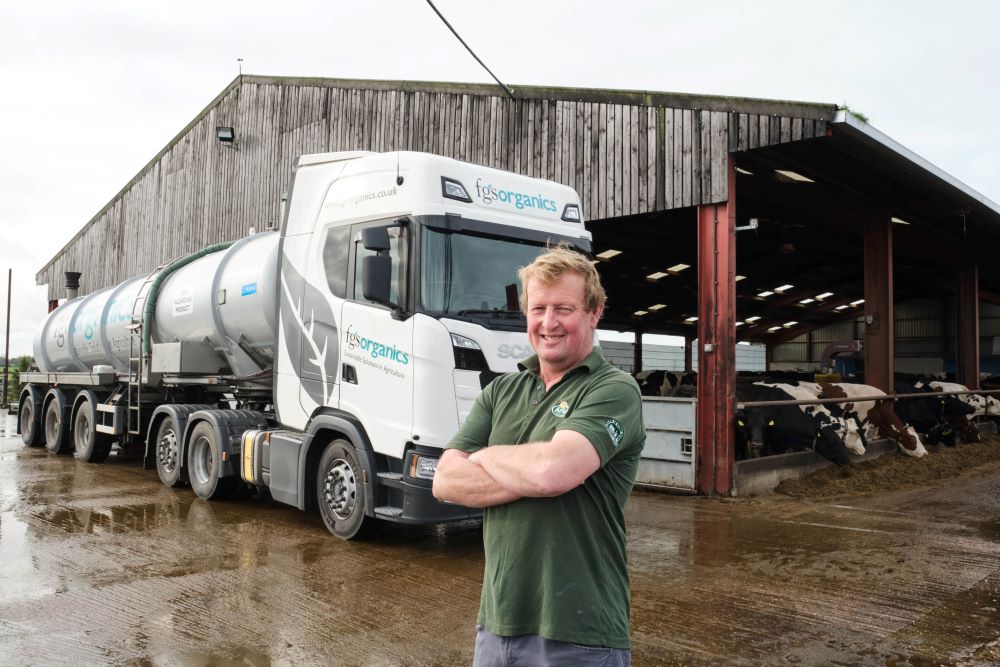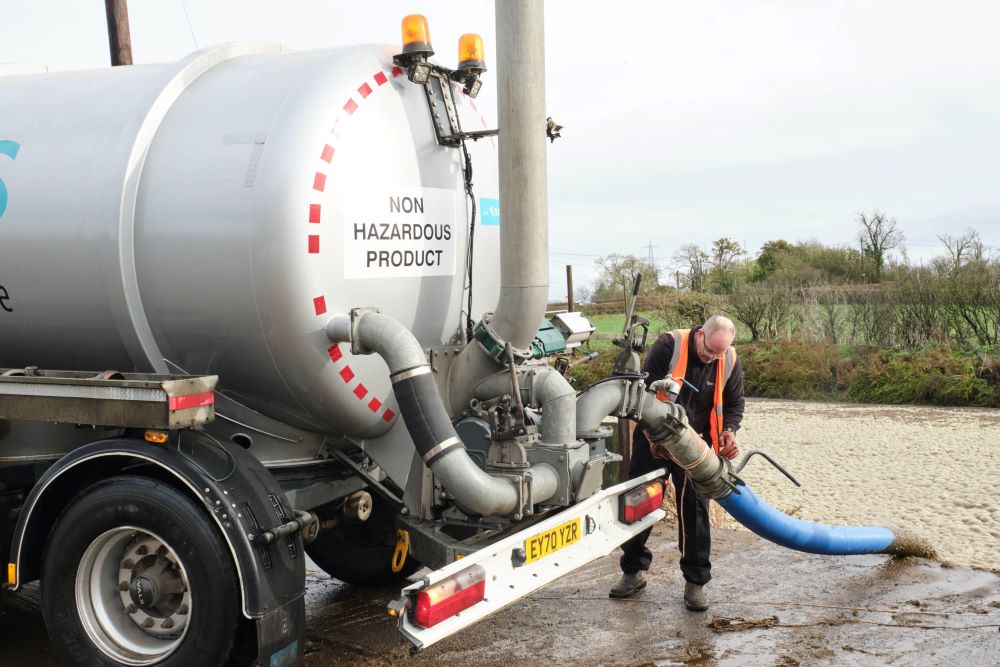British farmers reckon they have the perfect cure for the energy crisis – and it's manure

The UK’s biggest dairy cooperative, Arla, has issued a call to action for the government to tap into a major unused source of energy from farms and the wider food supply chain.
Figures show that with support, almost 91 million tonnes and 10 million tonnes respectively of food waste could be converted into 8 billion cubic metres of biomethane.
This would be enough to heat 6.4 million homes or run around 3.8 million of the UK’s buses and heavy goods vehicles.
However, Britain currently uses only 25% to 30% of the 170million tonnes of organic material produced each year in this country.
A new sustainable fuel
James Pirie, vice president of UK logistics for Arla, said: “At a time when energy security is a major concern for the government, businesses, and households across the UK, we’re clear about the opportunity presented by waste from farming and the wider food industry.
“We’ve shown that poo power is a viable and reliable source of power, so we’re calling for the Government to support British farmers and the waste and energy sectors with their plans for investment in infrastructure.
“With the prospect of an unsettled imported energy supply and costs rising significantly for farmers, businesses and families, it would be an incredible waste for the government not to support this opportunity and invest in a robust, more environmentally-friendly approach to home-grown energy.”
With 2,100 dairy farmers in the UK, the cooperative’s farmers’ cows produce millions of tonnes of slurry (poo) each year and when coupled with food that would otherwise have gone to waste Arla alone has the potential to turn tonnes of waste into valuable, reliable and sustainable fuel.
Increasing the number biogas-powered trucks will reduce vehicle emissions by 88%. Additionally, using Biogas digestate instead of fertilizer on crops will reduce on-farm emissions by 71%
jQuery(document).ready(function($) {
// These styles will only be applied if javascript is enabled
$(‘.gal_content’).css(‘display’, ‘block’);
// Create Advanced Galleriffic Gallery
var gallery = $(‘#thumbs_67231_1’).galleriffic({
delay: 0,
numThumbs: 0,
preloadAhead: 0,
enableTopPager: false,
enableBottomPager: false,
imageContainerSel: ‘#slideshow_67231_1’,
controlsContainerSel: ‘#controls_67231_1’,
captionContainerSel: ‘#caption_67231_1’,
loadingContainerSel: ‘#loading_67231_1’,
renderSSControls: true,
renderNavControls: false,
playLinkText: ”,
pauseLinkText: ”,
enableHistory: false,
autoStart: false,
enableKeyboardNavigation: true,
syncTransitions: false,
defaultTransitionDuration: 300,
onTransitionOut: function(slide, caption, isSync, callback) {
slide.fadeTo(this.getDefaultTransitionDuration(isSync), 0.0, callback);
caption.fadeTo(this.getDefaultTransitionDuration(isSync), 0.0);
},
onTransitionIn: function(slide, caption, isSync) {
var duration = this.getDefaultTransitionDuration(isSync);
slide.fadeTo(duration, 1.0);
// Position the caption at bottom of the image, and adjust its opacity
var slideImage = slides.find(‘img));
caption.fadeTo(duration, 1.0);
},
onPageTransitionOut: function(callback) {
//this.hide();
setTimeout(callback 100); // wait a while
},
onPageTransitionIn function() {
var prevPageLink = this.find(‘a.prev’).css({‘opacity’: ‘0.3’ , ‘display’ : ‘inline-block’, ‘cursor’ : ‘default’});
var nextPageLink = this.find(‘a.next’).css({‘opacity’: ‘0.3’ , ‘display’ : ‘inline-block’, ‘cursor’ : ‘default’});
// Show next/prev page relevant links
if (this.displayedPage > 0)
prevPageLink.css({‘opacity’ : ‘1’ , ‘display’ : ‘inline-block’, ‘cursor’ : ‘pointer’});
var lastPage = this.getNumPages() – 1;
if (this.displayedPage < lastPage)
nextPageLink.css({'opacity' : '1' , 'display' : 'inline-block', 'cursor' : 'pointer'});
this.fadeTo('fast', 1.0);
}
});
/**************** Event handlers for custom next / prev page links **********************/
gallery.find('a.prev').click(function(e) {
gallery.previousPage();
e.preventDefault();
});
gallery.find('a.next').click(function(e) {
gallery.nextPage();
e.preventDefault();
});
});
Potent poo-power
On the back of its recent ‘poo power’ trials in 2020, which saw Arla turn cow poo from 500 cows into 27,000 litres of biofuel for two trucks, the company has now invested in permanent moves to tap into this energy source.
The dairy cooperative began to use slurry in conjunction with food from Hatfield to power seven trucks.
The digestate byproduct of anaerobic digestion is a natural fertiliser which can be used on farms. It is more stable and less likely that it will have an adverse effect on water or air quality.
Arla asks three key questions of politicians to make it possible for British farmers to have access AD plants.
- They want them to collaborate with industry and local communities to create a national strategy for anaerobic digestion. This will encourage the use of slurry or manure as a renewable energy source and support its centralised, community-based and on-farm use.
- It should ensure that the new ELMS regime (Environmental Land Management Scheme), provides financial support to digestate as a biological fertilizer, recognising its environmental safety and greater environmental impact.
- They also want to extend the Renewable Transport Fuel Obligation (which supports the use biogases for transport) beyond 2032.
Arla farmer, Ian Barker, said: “Since signing up for the original poo power trial I’ve been an advocate of using our farms’ natural resources to create energy.
“It’s good to be in a position to prove that nothing need go to waste when it comes to a more sustainable approach to farming and food production, and I’m pleased to be part of this next step to a greener future.
“I’m hopeful that with more support for farmers, poo power will become a more regular feature of a more resilient, affordable energy supply.”
[Denial of responsibility! newsanyway.com is an automatic aggregator of the all world’s media. In each content, the hyperlink to the primary source is specified. All trademarks belong to their rightful owners, all materials to their authors. If you are the owner of the content and do not want us to publish your materials, please contact us by email – at newsanyway.com The content will be deleted within 24 hours.]


